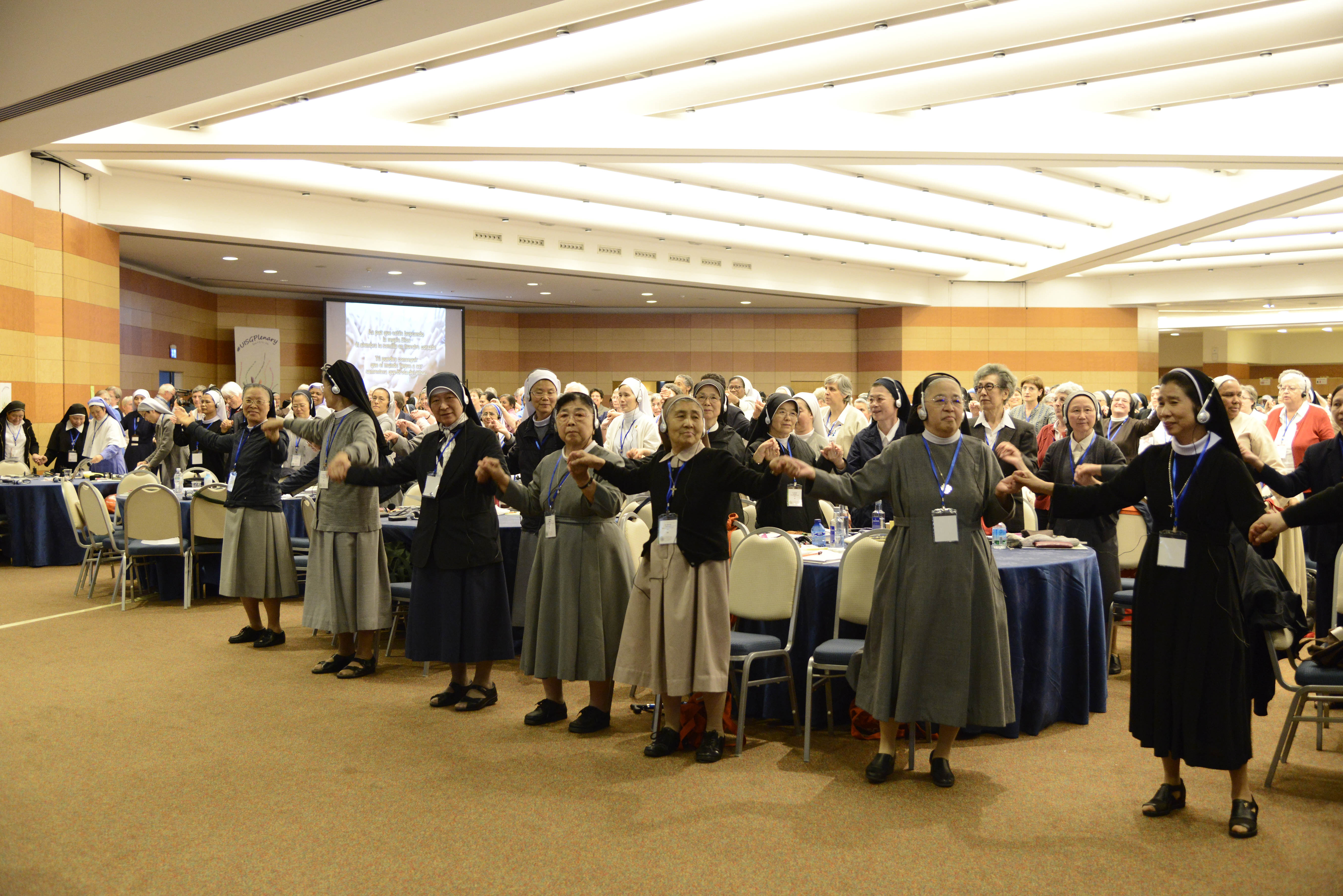Diaconate and not only
The overall impression is that while it is necessary to preserve the Church’s century-long tradition, it is equally urgent to take a hermeneutic step; an interpretative step that acknowledges contemporary thought and language. This is all the more true in a globalized, borderless world with a plethora of cultures, languages, and different mentalities, all willing to bring their life into play for Christ.

Questions requiring answers. Not rhetorical questions or marked by toadysm. Consecrated women have freely enjoyed this opportunity without breathing down on Francis’ neck but requesting a set of guidelines on how to proceed.
Women’s presence understood according to a new modality.
It’s not to demolish centuries of oppression, whether real or presumed; not to perceive themselves as innovative pioneers, but to respond to the contemporary Church with the contemporariness of consecrated women; not in heated controversy. All of these “not” are springboards for authentic positivity. They are deeply rooted questions, as deep as the very consecration.
Nobody can show the way better than the bishop of Rome, notwithstanding the fact that listening to the interested parties should never be underestimated or ignored, whether consecrated women or lay faithful.
The overall impression is that while it is necessary to preserve the Church’s century-long tradition, it is equally urgent to take a hermeneutic step, an interpretative step that acknowledges contemporary thought and language. This is all the more true in a globalized, borderless world, with a plethora of cultures, languages, and different mentalities, all willing to bring their life into play for Christ.
Francis encourages and distinguishes.
– Service not servants: not serfdom, manual labour, but care. It would be interesting to ask why after having shared the same meal, the woman is left with the washing of the dishes. We fed ourselves together, and together we must share the cleaning. Men and women, don’t they both have hands? The consecrated women know and can take care of those in search for God, yearning to establish a relationship with Him, starting from their personal experience as women touched by the Spirit.
– Present in the decision-making process: decisions cannot be imposed from above. They must stem and develop in the dialogue between two perspectives, the mal and the female, whose joint purpose is living Gospel proclamation.
– Clericalism: I might be wrong, but I dare say that few of us consecrated women intend to become “clericalised.” The priest has his role, his mission, his service. However, how can it be declined with the presence of consecrated women who don’t intend to imitate him and who prefer to serve remaining true to themselves? One thing is sure: if there is no room for us, we won’t be mummies, but corpses.
– Homily: Francis has traced an enclosed area within the sacred space where Mass, officiated by the presbyter, requires him to utter the Word. Outside this enclosed area can resound the voice of women who incorporated the Word, to the extent of being able to donate it to others. I ask in turn: do such areas exist? If not, do presbyters accept that such areas be created and occupied by us women?
– Permanent deacons: heated grounds. The only way to avoid rigidities on the one side, not to turn a blind eye, and to avoid useless and harmful endorsements on the other, motivated by far-sightedness, is a study marked by suspended judgement, by the overarching capacity of considering historic facts as they are; marked by critical detachment that listens to the voice of the Spirit and His presence in history, and not by how we would have wanted that presence to have been. It requires clarity of thought, characterised by absence of prejudice. It will be necessary for the Commission to work and be well-documented. The research will have to be done by experts, albeit not in the neutral philosophical terms, i.e. confined to men only, but rather a research whereby female experts may be involved and give their contribution, to jointly become docile instruments in the hands of the Spirit that relentlessly designs the face of the Church.
– Do repose: excellent advice! To this regard, the enemies aren’t only activism and the fret to concretize. In fact, when we are fully immerged in reality, we risk being swallowed up by it. That reference to rest doesn’t only mean a good sleep or a relaxing walk. It refers to that very posture that finds its breath only if it is listens to Him to whom we belong to, and whom we want to proclaim.
Interesting and sore spots. We cannot come out of them unless we enter, once and for all, in the concreteness of life. It requires the courage to experience, to implement. If not, our female progeny will be raising the same questions.
Theology, tradition and culture must interact, guided by rigorous scientific approach, with transparency. With the contribution of theology, whose in-depth study must be carried out by women. Just one question remains: Pope Francis, when shall we begin?